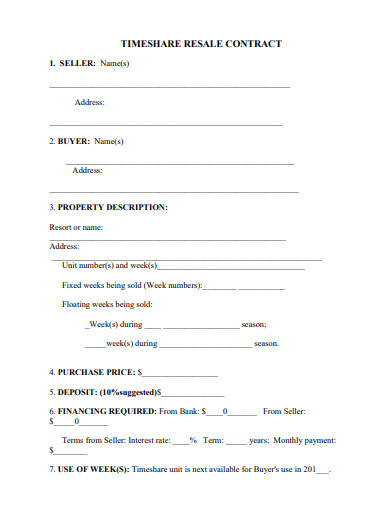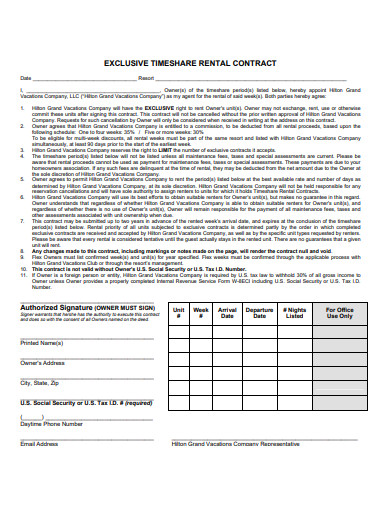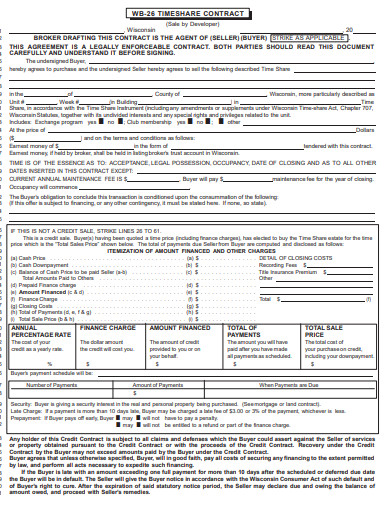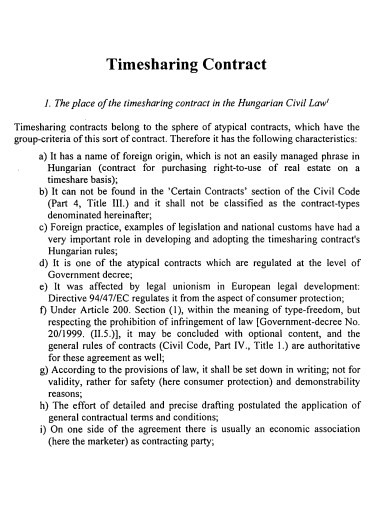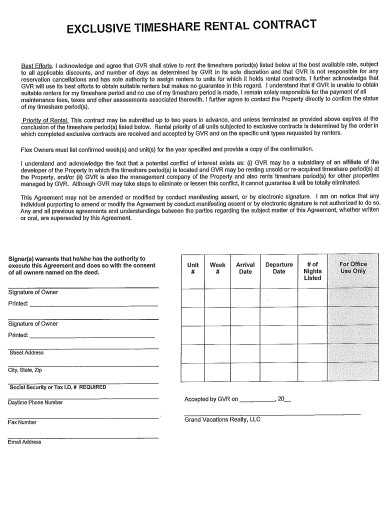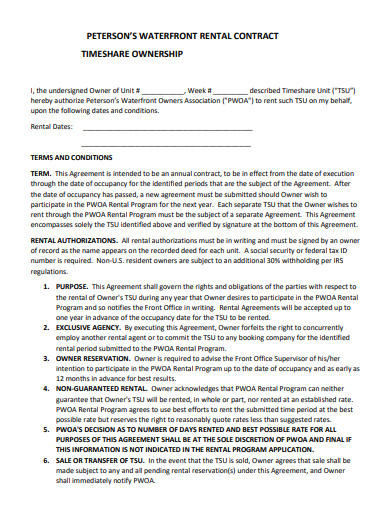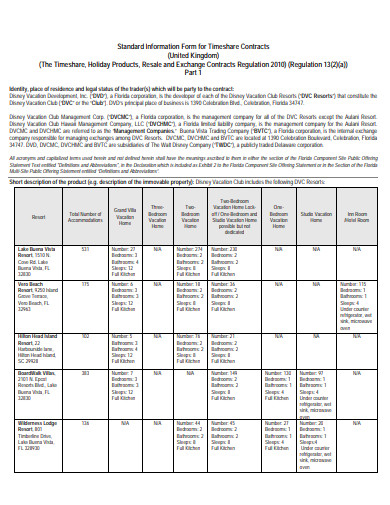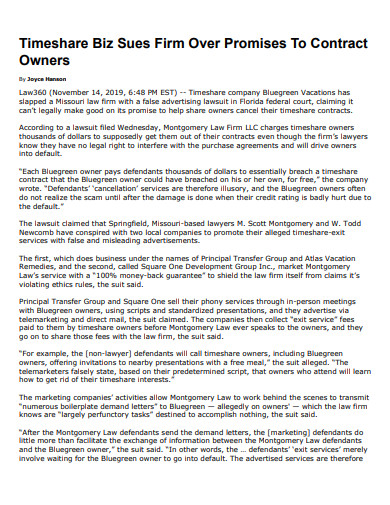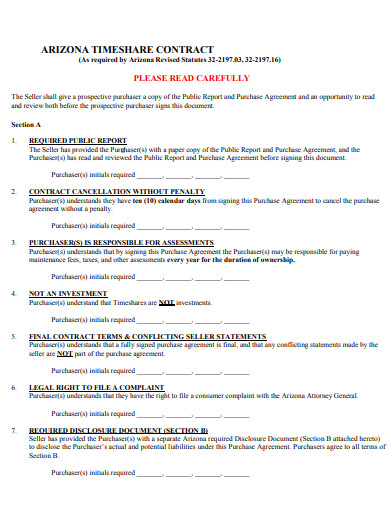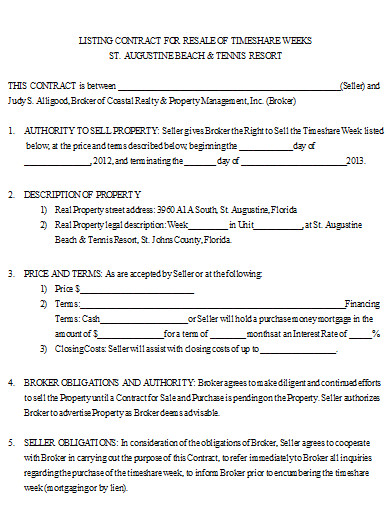If you’re considering signing a timeshare contract, there are a few things to think about. As a timeshare exit provider, we’ve helped a number of clients get out of contracts because they were mis-sold a timeshare, didn’t like what they paid for or became tired with their location too quickly. So, by reading the following information and advice, you should be able to better understand what you’re getting yourself into with a timeshare contract and the various sorts of agreements.
10+ Timeshare Contract Samples
A timeshare is a vacation real estate ownership concept in which numerous buyers possess allotments of usage in the same property, often in one-week increments. Vacation resorts, condominiums, apartments, and campgrounds are all examples of properties where the timeshare concept might be used. Time-sharing is a type of fractional ownership in which buyers buy the right to use a piece of real estate for a set amount of time. Purchasing one week of a timeshare, for example, entitles the buyer to 1/52 of the unit. One month’s purchase equals one-twelfth ownership. Within vacation destinations, time-sharing is very popular. Homes, condominiums, and resorts are examples of property types.
1. Timeshare Contract
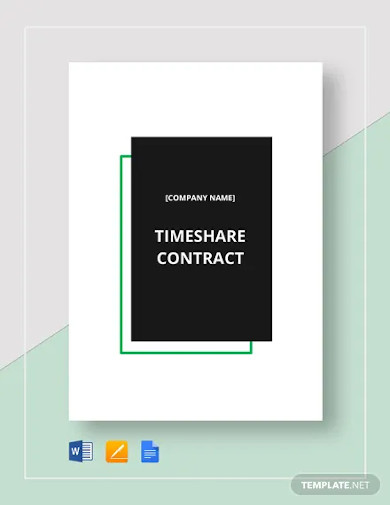
2. Timeshare Rental Contract
3. Sample Timeshare Rental Contract
4. Sample Timeshare Contract
5. Simple Timeshare Contract
6. Timeshare Contract Example
7. Timeshare Ownership Contract
8. Basic Timeshare Contract
9. Formal Timeshare Contract
10. Professional Timeshare Contract
11. Timeshare Resale Contract
Things You Need to Know About Timeshare Contracts
- Length of contract – A timeshare contract is frequently a perpetual contract. This usually signifies that there isn’t a set expiration date for the agreement. Most perpetuity clauses endure until your death when the timeshare fees and ownership evaporate. Timeshare perpetuity clauses, on the other hand, do not typically cease with the death of the original contract owner, but rather convey ownership and obligation to your offspring. As a result, your family may be held liable for yearly timeshare maintenance costs for future generations.
- Type of contract – There is a point-based system that gives you an annual number of points that you can use to exchange for any resort in the brand’s inventory or with affiliate resorts. A fixed-week contract covers only one resort for the duration of the contract. For some people, this can get tedious, so a points-based system allows them to try something new. Points can sometimes be traded for vacation services such as airport transfers and airfare costs. Different weeks of the year will have a different color, and particular resorts in certain areas will have a ‘points score’ indicating the number of points required to book it, similar to fixed season timeshare contracts.The exchange contract is similar to this one in that it allows a consumer to participate in an exchange program that allows them to access different accommodations in exchange for providing another individual temporary access to their timeshare. Simply, you are exchanging timeshares for the week you have been assigned. This has some limitations, as you can only swap timeshares with people who have the same week as you if you have a fixed-week contract.
- Time of year – You should also think about when your contract permits you to visit your timeshare. With a fixed week contract, the most common type of timeshare, you pay for the opportunity to use a specific resort or villa on a given week of the year each year. Because everything is fixed, you have limited room to change resorts or weeks. If you wanted to go to different places, you’d have to enroll in an exchange program. However, this is advantageous for those who want to know what to expect from a vacation year after year.
FAQs
How do timeshares work?
A timeshare is a holiday rental agreement that allows you to split the cost of the property with others in exchange for guaranteed time at the property. However, they fail to highlight the rising maintenance fees and other ancillary expenditures that can make owning one unaffordable.
What is an advantage of having timeshare?
The majority of timeshares in desirable vacation destinations are owned by huge enterprises. Timeshare owners can relax knowing that they will be able to vacation in a familiar place year after year with no unpleasant surprises.
What is a disadvantage of having timeshare?
Reselling a timeshare is famously difficult–assuming the contract allows for it in the first place–and this lack of liquidity may be a disincentive to a potential investor. For two reasons, a timeshare resale may fetch a substantially lesser price than the original purchase price. Timeshares depreciate quickly, and because of the large number of timeshare owners wishing to quit their contracts, there is a supply and demand mismatch.
If you want to see more samples and formats, check out some timeshare contract samples and templates provided in the article for your reference.
Related Posts
Sample Excuse Letter for School
Feature Writing Samples
FREE 10+ Security Guard Contract Samples in PDF | MS Word
FREE 10+ Option to Purchase Agreement Samples in MS Word | Apple Pages | PDF
FREE 26+ Curriculum Form Samples in MS Word | PDF
FREE 20+ Cleaning Service Proposal Samples in PDF | MS Word
FREE 29+ Sample Loan Application Form Templates in MS Word | PDF
FREE 10+ Event Venue Contract Samples in PDF | MS Word | Pages | Google Docs
FREE 10+ SBAR Samples in PDF | DOC
FREE 12+ Music Band Contract Templates in PDF | MS Word
FREE 10+ HVAC Maintenance Contract Samples in PDF | MS Word
FREE 10+ Social Media Marketing Contract Samples in MS Word | PDF
FREE 10+ Wholesale Assignment Contract Samples in PDF
FREE 18+ Financial Proposal Samples in PDF | MS Word | Google Docs | Pages
FREE 10+ Feasibility Study Samples in PDF

